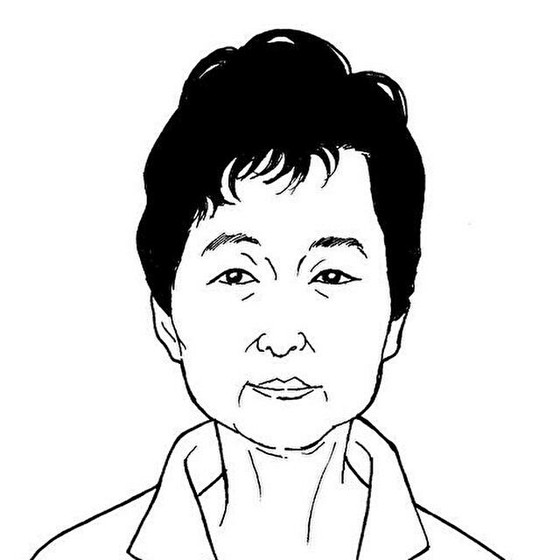 |
The media caught her moving around in a wheelchair with her gray hair raised and tied, whilst wearing a mask. Although it was blocked by a mask, it seemed that there was a sign of resentment, probably because she was a 70-year-old woman who had lived as a prisoner for more than 4 years.
Before dawn on March 31th, 2017, former President Park Geun-hye was arrested by a court ordered decision and headed for Seoul detention center. At that time, the figure that was placed in the middle of the back seat of a passenger car and escorted with a plain, expressionless face. She symbolized the extreme changes that had fallen to the ground from her status, which had received her highest courtesy only 20 days earlier.
There are other symbols of such extreme changes. It is exactly the "brutality" of Koreans. The media at the time reported that Park Geun-hye was the third president following former president Chun Doo-hwan and former president Roh Tae-woo. However, in the case of former President Park Geun-hye, the situation is different from the previous two. The impeachment and detention of President Park Geun-hye is not due to the rule of law, but to "wrong national sentiment."
There was no evidence of objective bribery, she was impeached by the abstract charges of "implicit request" and "state affairs". She was detained and sentenced to more than 20 years in prison. Not due to the rule of law
but "Introspect law" (all available means) in the Taebong era (899-918) In short, even with torture, etc.A method of investigating and detecting sins by exploring the inside.
It was rather close to something that relied on something like (close to witch hunting or heresy detection).
If you think a little deeper in this respect, you will notice that Koreans are more brutal than you can imagine. If the logic is that you must go to jail after being impeached with all responsibility for the deviation of the president's acquaintance (Chung-hee) on top of the "national sentiment", the miracle of the Han River can be achieved by the exact same "national sentiment". The logic of not going to jail is naturally established, taking into account the achievements of the leading father (former president Park Chung-hee) and avoiding impeachment.
However, in reality, of the two national sentiments, only the logic that one should take unlimited liability for the deviation of an acquaintance was perfectly reflected, and the logic of taking into account the achievements of his father was completely ignored. After all, in this scene, it became possible to infer that there are many Koreans who are brutal and feel joy in causing someone pain. When it is necessary to choose between the side who sees the situation generously and the side who causes pain, a large number of people are formed on the side which causes pain "without suffering (mercilessly)".
As soon as they were temporarily under the control of the communist forces on June 25th (Korean War), those who faced each other with smiles until a while ago became completely cold and held a people's trial with a bamboo spear. An incident occurred in which one's boss or one's colleague was brutally murdered and killed. Given the characteristics of the former Communists and the basic humanity of Koreans, it is easy to understand why such a tragedy occurred.
It seems that they already are brutal, even if it causes someone to fall into pain. Looking at the reality of insulting and distressing the daughter of a person who laid the foundation for today's affluent life,
It makes me wonder where the limits of Korean brutality are.
Even considering that former President Park Geun-hye lost her father (assassinated by his subordinates in 1979) and mother (assassinated by North Korea in 1974) in an unfortunate incident (bullet). It wasn't very likely, but it wouldn't have been possible to be hostile like this. I feel it now, it seems that Koreans definitely have "brutal DNA".
*This article is from a Japanese translation of a contribution by Mr. LUDA, a conservative Korean conservative fund. The Korean version has already been published in the Korean media. We are responsible for the accuracy of the translation.
2021/07/27 20:39 KST


